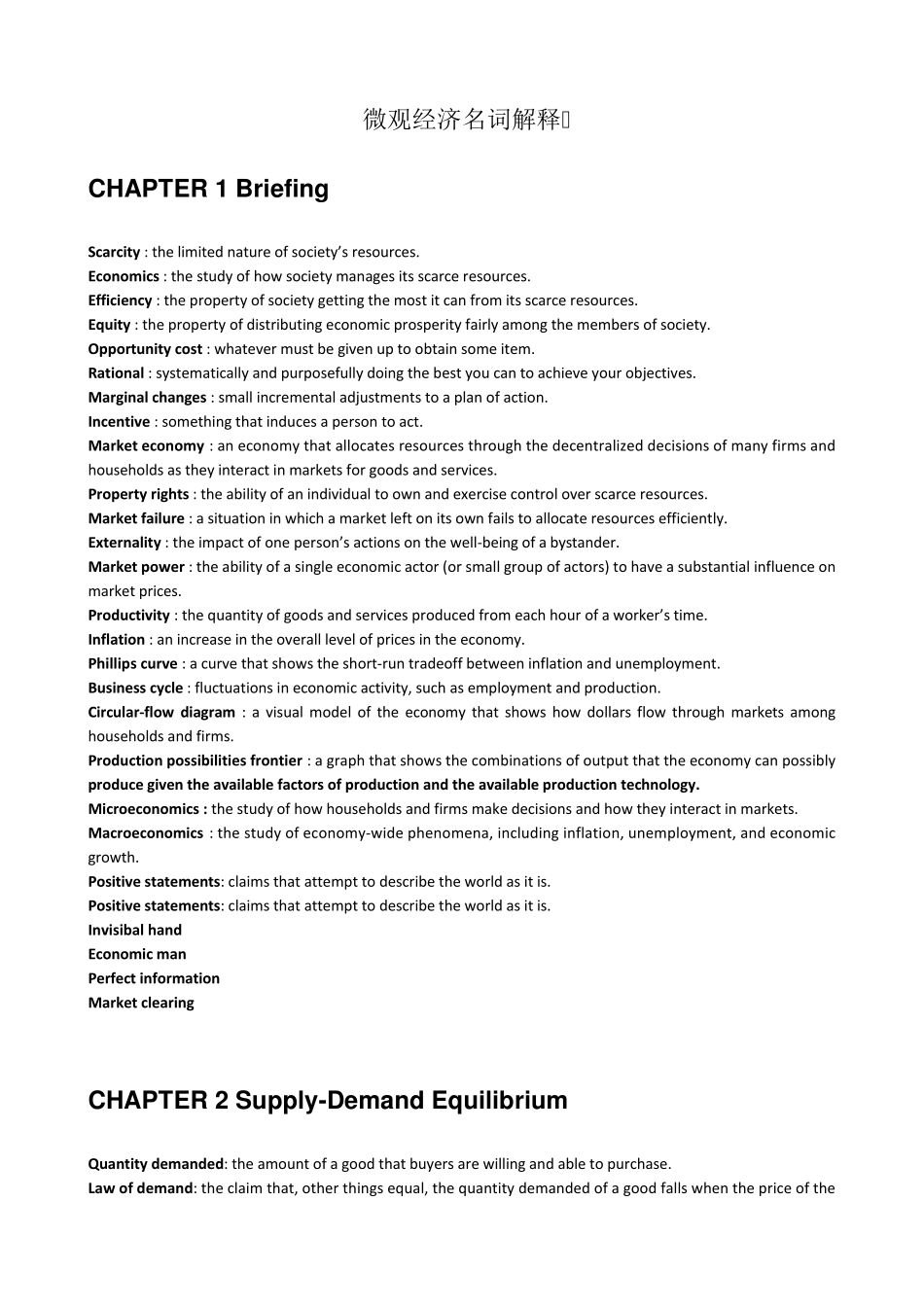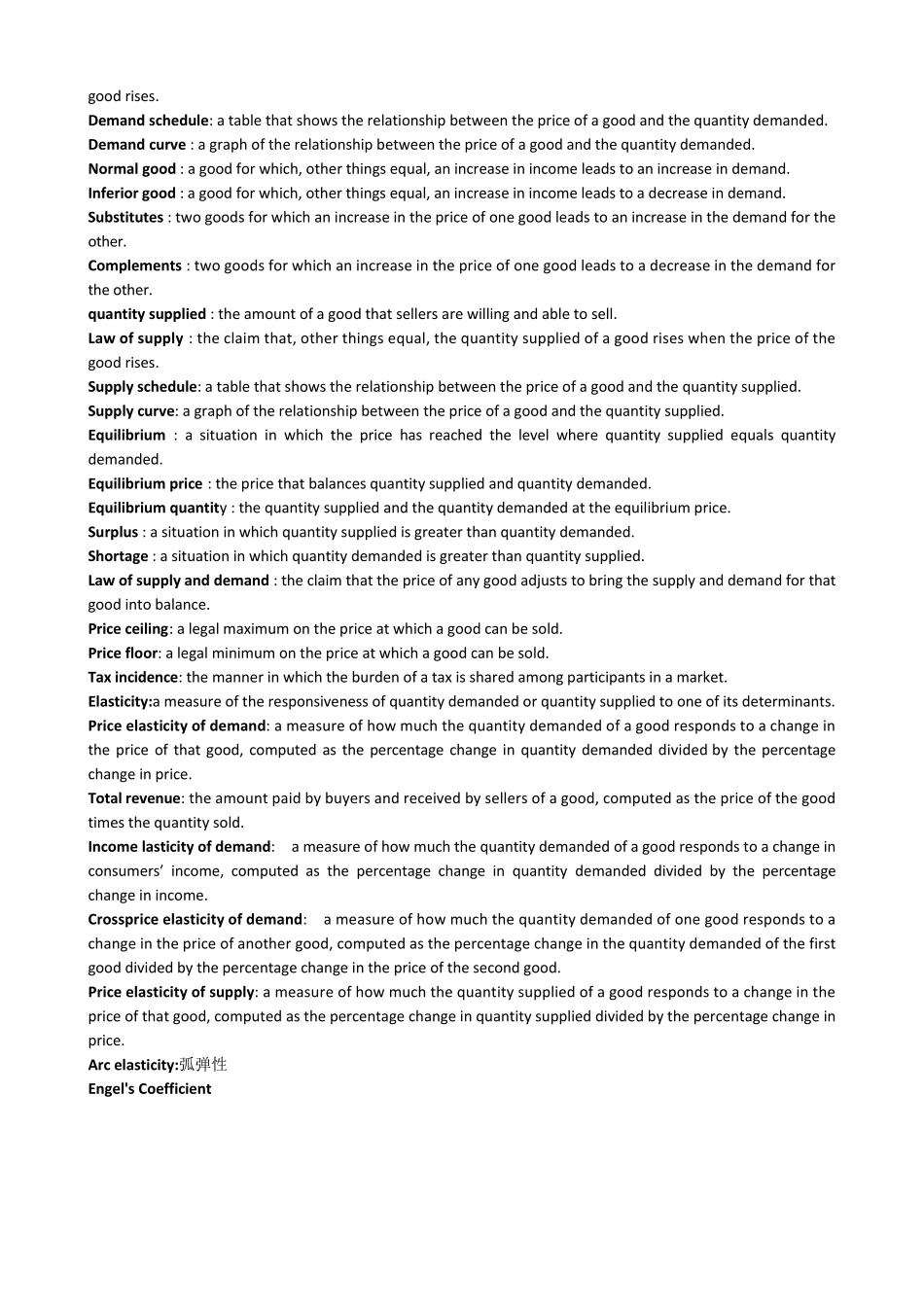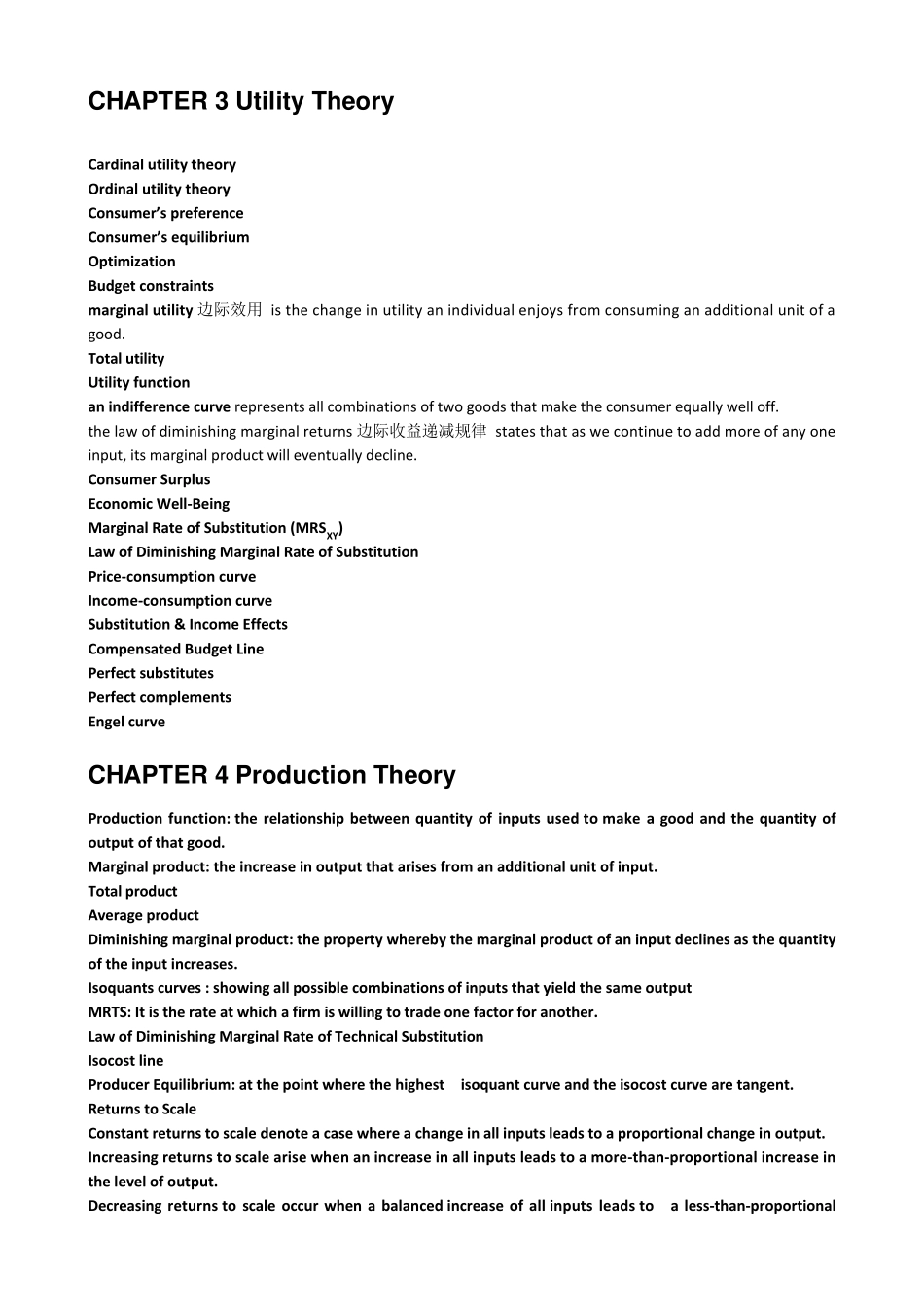微观经济名词解释 CHAPTER 1 Briefing Scarcity : the limited nature of society’s resources. Economics : the study of how society manages its scarce resources. Efficiency : the property of society getting the most it can from its scarce resources. Equity : the property of distributing economic prosperity fairly among the members of society. Opportunity cost : whatever must be given up to obtain some item. Rational : systematically and purposefully doing the best you can to achieve your objectives. Marginal changes : small incremental adjustments to a plan of action. Incentive : something that induces a person to act. Market economy : an economy that allocates resources through the decentralized decisions of many firms and households as they interact in markets for goods and services. Property rights : the ability of an individual to own and exercise control over scarce resources. Market failure : a situation in which a market left on its own fails to allocate resources efficiently. Externality : the impact of one person’s actions on the well-being of a bystander. Market power : the ability of a single economic actor (or small group of actors) to have a substantial influence on market prices. Productivity : the quantity of goods and services produced from each hour of a worker’s time. Inflation : an increase in the overall level of prices in the economy. Phillips curve : a curve that shows the short-run tradeoff between inflation and unemployment. Business cycle : fluctuations in economic activity, such as employment and production. Circular-flow diagram : a visual model of the economy that shows how dollars flow through markets among households and firms. Production possibilities frontier : a ...


